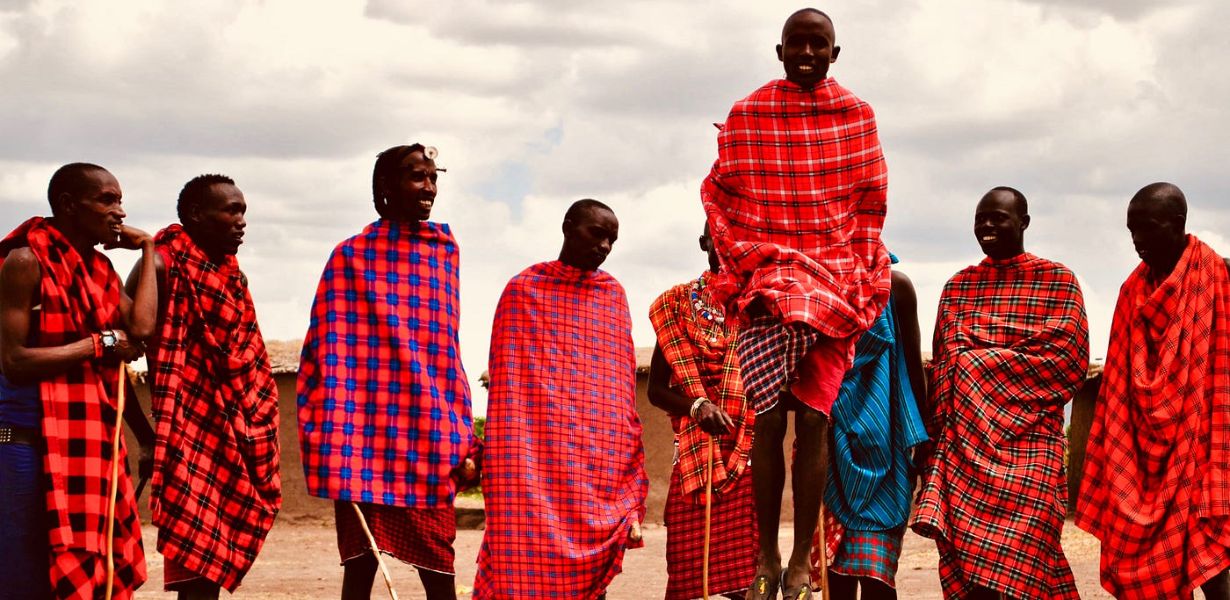
Welcome to our immersive journey into the captivating world of Maasai culture. Delve into the heart of East Africa as we unravel the tapestry of traditions, beliefs, and rituals that define the Maasai people. Immerse yourself in the vibrant colors, remarkable ceremonies, and deep-rooted values that have withstood the test of time.
Unveiling Maasai Culture: A Glimpse into Timeless Traditions
Embarking on a voyage through Maasai culture is akin to stepping into a living history book. Rooted in the vast landscapes of Kenya and Tanzania, the Maasai have preserved their cultural heritage for generations. The community’s dedication to their way of life is reflected in their clothing, language, social structure, and rituals.
Dressing the Maasai Way: Colorful Elegance and Identity
One cannot discuss Maasai culture without delving into their distinctive attire. The vibrant reds, blues, and greens of their clothing not only showcase their artistic flair but also hold deep symbolism. The shukas, wrapped garments worn by both men and women, reflect the harmony between humans and nature that the Maasai hold dear.
Nomadic Traditions: Navigating a Pastoral Lifestyle
At the core of Maasai identity is their pastoral lifestyle. Traditionally nomadic, they rely on cattle for sustenance and wealth. The cattle are not just economic assets but also spiritual beings, woven into the fabric of Maasai cosmology.
Age-Old Rituals: Maasai Rites of Passage
Rites of passage play an integral role in Maasai culture, marking significant transitions in life. From the elaborate Eunoto ceremony that ushers young warriors into adulthood to the Emuratare ceremony that celebrates womanhood, these rituals are a testament to the community’s values and beliefs.
Language and Expression: The Power of Maasai Words
The Maasai language, Maa, is an intricate reflection of their worldview. It not only enables communication but also preserves their collective memory and wisdom. The Maasai use storytelling as a means of passing down traditions, sharing history, and transmitting cultural knowledge.
Spiritual Beliefs: Connecting with the Divine
The Maasai spiritual universe is rich and diverse, encompassing a deep reverence for nature and the divine. Engaging in rituals and ceremonies that honor their god, Enkai, the Maasai demonstrate their close bond with the natural world.
Economic Framework: Thriving in Harmony with the Land
While the Maasai have upheld their traditional ways, they have also navigated the modern economy. Their harmonious relationship with the land supports not only their livestock but also ecotourism initiatives that offer a glimpse into their culture.
Challenges and Preservation: Navigating the Modern Landscape
In the face of modernization and external influences, the Maasai culture has encountered challenges. Striking a balance between preserving their heritage and embracing change remains a continuous endeavor for the community.
Cultural Significance: Beyond Borders and Boundaries
The allure of Maasai culture extends beyond its geographical boundaries. Their vibrant dances, captivating beadwork, and unique way of life have drawn the attention of the world, fostering appreciation and understanding.
Final Words
In the heart of the African savannah, the Maasai people proudly stand as guardians of a culture that reverberates through time. Their clothing, rituals, language, and beliefs weave a tapestry of tradition that continues to captivate and inspire. Join us on this journey to honor the Maasai culture, where heritage and identity intertwine.
Commonly Asked Questions
Q1: What are the significance and symbolism behind Maasai beadwork?
Maasai beadwork is a visual language that communicates stories, status, and identity. Each color and pattern holds meaning, reflecting the wearer’s age, social status, and role within the community.
Q2: How does modernization impact Maasai traditions?
Modernization has brought both opportunities and challenges to Maasai culture. While it has provided access to education and healthcare, it has also introduced changes that challenge traditional ways of life and values.
Q3: What role do women play in Maasai society?
Women in Maasai society are integral to the community’s survival. They are responsible for household tasks, milking cattle, and maintaining the homestead, while also passing down cultural knowledge to the next generation.
Q4: How do the Maasai adapt to a changing environment?
The Maasai have embraced ecotourism as a means of preserving their culture and sustaining their livelihoods. By sharing their traditions with visitors, they create a sustainable income while promoting cultural awareness.
Q5: What can we learn from the Maasai way of life?
The Maasai offer valuable insights into living in harmony with nature, respecting traditions, and fostering a strong sense of community. Their commitment to their cultural identity serves as a reminder of the importance of preserving heritage in a rapidly changing world.





